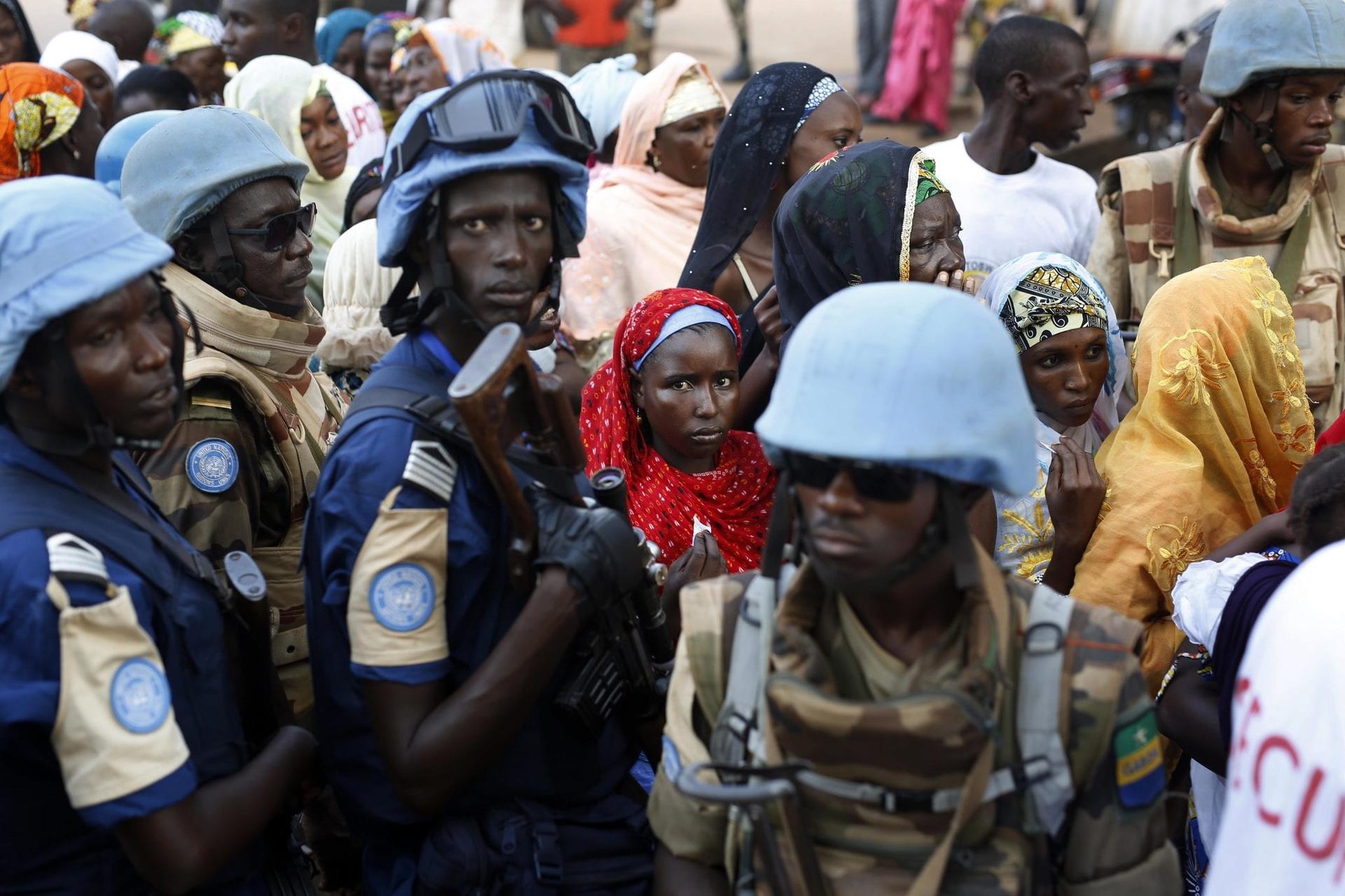Human Rights Watch titled its July 2017 report on the Central African Republic “Killing without consequence,” referring to the scourge of war crimes, extra-judicial homicides and random violence that’s gripped the country over the last three years, turning it into essentially a free-fire zone.
The country’s leading Catholic official says there’s no way out of that spiral of violence that doesn’t include justice for its victims.
The Human Rights Watch report says at least 566 civilians were killed in attacks between November 2014 and April 2017, with an additional 144 people dying in the bushes after fleeing the conflict, either from injury, illness or hunger. In addition, over 4,000 homes were destroyed.
“All of these numbers are likely to be a fraction of the totals during this period because no comprehensive record of the deaths and destruction exists,” it states.
As the International Criminal Court investigates an “interminable list” of crimes against humanity committed in the CAR before, during and after the civil war that broke out in 2012, the Catholic Archbishop of Bangui, Cardinal Dieudonné Nzapalainga, has underscored the need for justice as an essential ingredient for a sustainable peace.
In an interview with the Central African Newspaper Centrafrique Espoir, the cardinal, who is also the President of the Episcopal Conference of Central Africa, said there can be no sustainable peace without justice, emphasizing that those guilty of wrongdoing have to account for their crimes.
“It is important for the human being to realize the evil he has committed against his brother,” Nzapalainga said.
“Justice – which can deprive you of freedom for a certain period of time – is a positive value to reflect and mature in humanity. To say no to impunity is to say no to the infernal cycle of violence. Nothing must be above the law,” he added.
“Those who committed acts of violence, those who divided the people; who killed have to account for their actions.”
Quizzed on whether his insistence on the need for those guilty of wrongdoing to face the law courts doesn’t contradict the Christian virtue of forgiveness, Nzapalainga said justice is actually complimentary to forgiveness.
“Forgiveness has never ruled out justice, on the contrary… But if you deny your crimes, then forgiveness makes no sense,” he said.
Nzapalainga said he was hopeful that peace would return to the Central African Republic, for although human beings can do worse things, they are also capable of doing good, because man is innately good, having been built “in the image of God.”
He welcomed judgment by the International Criminal Court, but suggested that the CAR’s traditional justice system should also be involved, because “there are people in the villages who won’t be able to go to the International Criminal Court.” (The ICC is based in the Netherlands).
“When a traditional leader gathers his subjects, it means there is a problem, and at the end, judgment is issued locally and social cohesion is enhanced,” he said.
On May 30, 2014, the transition government of the CAR referred the situation in the country to the ICC requesting that the court open investigations on alleged crimes against humanity that fall within the court’s jurisdiction committed in the country since the first of August 2012.
According to the Prosecutor of the International Criminal Court, Fatou Bensouda, information available provides “a reasonable basis to believe that both the Séléka and the anti-balaka groups have committed crimes against humanity and war crimes including murder, rape, forced displacement, persecution, pillaging, attacks against humanitarian missions and the use of children under fifteen in combat.”
She praised the country’s government for the decision to refer to the ICC, noting that it was a demonstration of the CAR’s “commitment to fight impunity for mass crimes and to bring justice to the victims. We look forward to their full cooperation as we conduct our investigation into these crimes.”
She promised to carry out the investigations in an “independent and impartial manner,” and that the ICC will continue to “record any new crime against civilians that might be committed in CAR. Mass crimes shock the conscience of humanity and tear at the social fabric of society. Let this be a message to would-be perpetrators in CAR and beyond: such crimes will not be tolerated and will be met with the full force of the law.”
Central Africa went into a fresh civil war in 2012 when a loose rebel coalition named the Seleka initiated a military campaign to overthrow the government of François Bozize.
On March 24, 2013 Djotodia’s predominantly Muslim rebel group, the Séléka, forced Bozizé out of power. The regional body, the Economic Community of West African States, ECCAS refused to recognize Djotodia as president. Rather, it called for the creation of a Transitional National Council (TNC), in April 2013.
The TNC was charged with drawing up a new constitution, and conducting fresh elections within 18 months.
The Council selected Djotodia as the interim President-the first Muslim to occupy the post of president in the history of the Central African nation. But his government was immediately criticized; with his Seleka rebels (mostly Muslims) accused of committing various crimes during the insurrection to overthrow Bozize.
Djotodia failed to disband the group, and increasingly, Christians became targets for attack. To protect themselves, a group called Anti-Balaka, made up of mostly Christians, was formed, and the cycle of violence between the Seleka and anti-Balaka intensified.
Djotodia was eventually forced to quit power, but the violence didn’t quit with him. Four years down the line, the escalating violence has left thousands dead, millions homeless.
Nzapalainga says there is need for peace, but it must be accompanied by justice, because justice “is essential for social cohesion.”

















